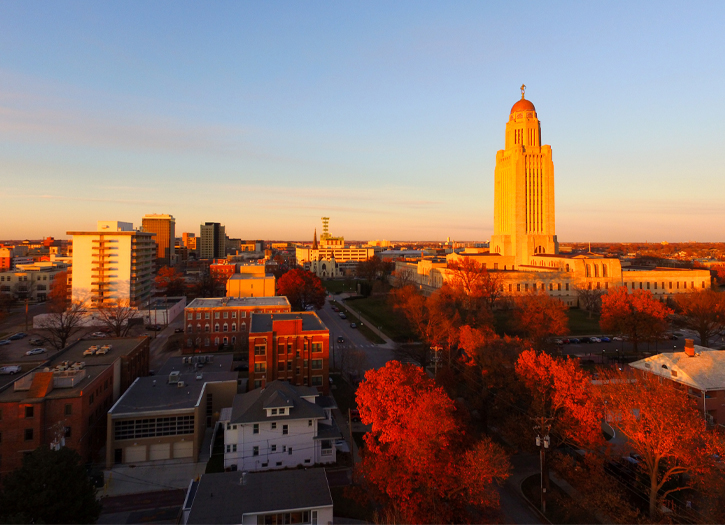The COVID-19 pandemic in Nebraska is an ongoing viral pandemic of coronavirus disease 2019 (COVID-19), a novel infectious disease caused by severe acute respiratory syndrome coronavirus 2 (SARS-CoV-2). As of October 4, 2020, there have been 47,807 confirmed cases and 501 deaths.
On February 17, thirteen Americans were repatriated to University of Nebraska Medical Center from the Diamond Princess off the coast of Japan. Ten had tested positive, and three others had been exposed. Three days later, eleven of these people tested positive.On March 6, Governor Pete Ricketts announced Nebraska’s first presumptive case, a 36-year-old woman from Omaha who had recently returned from a trip to England.On March 19, Ricketts began to institute restrictions on commerce and public gatherings via the “Directed Health Measures” (DHM) system, within individual counties based on the number of active infections in a region. Nebraska’s first two deaths were announced on March 27; the state had reached 83 confirmed cases.A third death was announced on March 30, followed by a fourth the next day.
Ali Khan, Dean of the University of Nebraska Medical Center College of Public Health, stated that transmission of COVID-19 in Nebraska was still “relatively uncontrolled”.On June 24, it was reported that Nebraska had the fourth-lowest COVID-19 fatality rate of all U.S. states, behind only Arkansas, South Dakota, and Utah. Ricketts and other government officials encouraged residents to continue following government guidelines and health measures over the Independence Day weekend to prevent the spikes that had been seen elsewhere. On October 4, the state past 500 cumulative deaths due to the coronavirus.
On March 27, Governor Ricketts announced that the state would waive certain license fees and background checks in order to expedite the entry of retired, inactive, and out-of-state health professionals to help in managing the pandemic.On April 21, Ricketts announced a program known as TestNebraska to expand testing via partnerships with private companies, with a goal to reach 3,000 tests per-day within the next five weeks. The $27 million program was modeled upon a similar program in Utah, and involves companies based in the area such as Domo, Nomi Health, Qualtrics, and SafeLine Health. Iowa had also signed a contract with the same companies for a similar program.
Rather than implement a state-wide stay-at-home order, Nebraska employed a framework of “Directed Health Measures” (DHM), which included enforceable restrictions on public gatherings of more than 10 people, elective medical procedures, restaurants (restricted to take-out service only), schools (must close to students through May 31, no extracurricular activities), and social distancing. These measures were phased in on a county-by-county basis based on active infections among the regions.On April 3, Mayor of Omaha Jean Stothert threatened to close the city’s parks if visitors do not practice social distancing.
On March 12, the NCAA cancelled all of its remaining tournaments for the academic year. This included the 2020 College World Series baseball tournament, which is hosted by Omaha under a long-term agreement. The cancellation is expected to have a major economic impact, especially on businesses near TD Ameritrade Park (such as bars, restaurants, and shops) that rely on the influx of fans for their revenue. Spring sports at Nebraska’s high schools were also cancelled.In horse racing, Fonner Park in Grand Island suspended races on March 16,before resuming its season behind closed doors beginning March 23.
As one of the few U.S. tracks to continue operations, off-track betting simulcasts from Fonner Park would attract national attention to the relatively obscure track: Fonner Park set a record single-day handle of $1.3 million on March 23 (exceeding the previous record of $1.2 million),and the average daily handle reached $2.1 million by the end of the “trial”—prompting the track to continue with this format for the remainder of the season.Fonner Park handled $71.3 million in wagers from February through April 2020, an increase of $63.8 million over 2019.
In August 2020, the Big Ten Conference indefinitely delayed the start of its 2020 college football season. The Nebraska Cornhuskers football team declared an intent to play in the fall as an independent. In mid-September, the Big Ten approved a shortened season to begin in late-October.







Add Comment